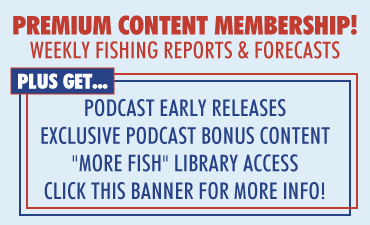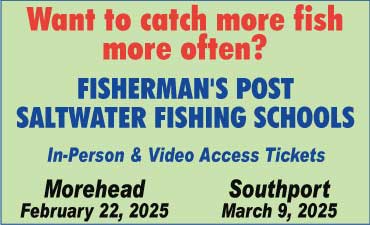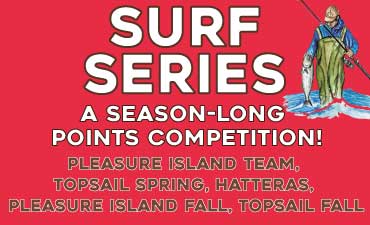Releases October 24, 2013
Oyster season started Oct. 15, and people are pulling out their fire grates and steamer pans, ready to slurp down the salty treats.
But before they indulge, consumers should take some basic precautions to prevent illness. Here are some tips from the N.C. Division of Marine Fisheries that pertain to oysters and clams:
(1) Only purchase shellfish from reputable dealers, retailers, grocers, markets or restaurants. It is illegal for shellfish harvesters to sell directly to the public unless they are also certified shellfish dealers. These licensed dealers are inspected and required to keep shellfish under refrigeration and keep sanitation records.
(2) Ask to see the shellfish tag before you purchase. By law, the shellfish tag must be removed at the last point of sale and kept on file for tracking purposes, but consumers can always ask to see the tag to look at when the shellfish were harvested and what area they are from. For the best quality, shellfish should be consumed within seven days of harvest.
(3) Keep oysters and clams refrigerated until you are ready to cook and eat them. Shellfish need to be kept at or below 45 degrees Fahrenheit to prevent bacterial growth.
(4) Store shellfish away from other contaminants. Shellfish are living animals when you purchase them, so they can become contaminated by placing them on wet floors, splashing them with dirty water or dripping raw fish and other foods.
(5) Thoroughly wash shellfish prior to cooking. Remove all mud and dirt from the outside of the shellfish, using water and a stiff brush.
(6) Prior to cooking or raw consumption, discard any dead shellfish. Dead shellfish will have slightly gaping shells that will not close when tapped.
(7) Those with the following conditions are at higher risk for a potentially serious or even fatal illness from the naturally occurring Vibrio bacteria: Liver disease (from hepatitis, cirrhosis, alcoholism, or cancer); Diabetes; Iron overload disease (hemochromatosis); Cancer (including lymphoma, leukemia, Hodgkin’s disease); Stomach disorders; Or any illness or medical treatment that weakens the body’s immune system.
People with these conditions should fully cook all shellfish before consumption. Cooking the oyster kills the Vibrio bacteria. If you are unsure of your risk, ask your doctor.
For more information about Vibrios, see the N.C. Department of Health and Human Services’ website at http://epi.publichealth.nc.gov/cd/diseases/vibrio.html. For more information about North Carolina shellfish safety, contact Patti Fowler, the division’s Shellfish Sanitation and Recreational Water Quality section chief, at 252-808-8147 or Patti.Fowler@ncdenr.gov. You may also contact Steve Murphey, with the Shellfish Sanitation Section, at 252-808-8155 or Steve.Murphey@ncdenr.gov.
For regulations on oyster harvest, see Proclamation SF-7-2013 at http://portal.ncdenr.org/web/mf/proclamations. For more information on this year’s oyster season, contact Mike Marshall, the division’s Central District manager, at 252-808-8077 or Mike.Marshall@ncdenr.gov.
The N.C. Division of Marine Fisheries is reminding fishermen of to submit comments on how best to fund the division’s Observer Program. Written comments may be submitted to: Chris Batsavage, Protected Resources Section Chief, P.O. Box 769, Morehead City, N.C. 28557. Or comments can be emailed to: Chris.Batsavage@ncdenr.gov.
The deadline for submitting comments is 5:00 p.m. Nov. 1.
The Observer Program collects at-sea information about the commercial and recreational catch by watching fishing activity, either onboard fishermen’s vessels or from a division vessel operated in the vicinity of the fishing activity. Technicians record data on different aspects of the fishing activity that they observe.
The federal government requires observer coverage of the state’s estuarine gill net fisheries as a condition of a permit that authorizes the limited take of sea turtles in these fisheries. Without observer coverage, these fisheries must close. Scientists also use the collected information in stock assessments.
The N.C. General Assembly approved a one-time appropriation of $1.1 million to fund the Observer Program in fiscal 2013-14, but approved increases in many commercial fishing license fees to fund this program in the future. The legislature instructed the division to hold at least three public meetings in different coastal counties to seek input in developing a plan for additional funding sources for the program.
For more information, contact Batsavage at (252) 808-8009.
The N.C. Wildlife Resources Commission has exempted surfboards, tubes, swimming rafts, and inflatable toys from the requirement to carry personal flotation devices (PFDs), also known as life vests.
The action was taken during the August meeting of the Wildlife Commission. It had been demonstrated that requiring PFDs for these types of floating devices did not enhance safety significantly. Prior to the rule change, anyone on such floating devices outside of a designated swimming area was required to carry a PFD.
The Commission also clarified the definition of competitive paddle or rowing vessels under boating safety rules. The definition now reads those manually propelled vessels “that are recognized by national and international racing associations for use in competitive racing and in which all occupants row, scull, or paddle, with exception of a coxswain, if one is provided, and are not designed to carry any equipment not solely for competitive racing, such as racing shells, rowing sculls, racing canoes, and racing kayaks, are exempt from requirements for any type of PFD.”
Paddleboards, kayaks, canoes, and rowboats are not exempt and must have accessible for each person onboard a Type I, II or III PFD in good condition and of appropriate size.
For more information on boating safety and requirements, go to www.ncwildlife.org.
The 2014 Shape of the Coast program is scheduled for 8:00 a.m. to noon on Feb. 14 at the William and Ida Friday Center for Continuing Education in Chapel Hill. This event is part of the University of North Carolina School of Law’s Festival of Legal Learning.
The coastal session is co-sponsored by the N.C. Coastal Resources Law, Planning and Policy Center; North Carolina Sea Grant; and the University of North Carolina School of Law.
“The Shape of the Coast program will provide a forum for discussion of marine policy and ocean and coastal legal issues that will be of interest to legal practitioners, policy makers and anyone else who cares about our coast,” says Lisa Schiavinato, Sea Grant coastal law, policy and community development specialist and co-director of the Center. “The diverse topics will highlight the emerging coastal issues for North Carolina and lead to an increased understanding of the coast’s legal and resource management issues.”
The speakers are as follows:
(1) Lisa Schiavinato and Joseph Kalo, Center co-directors, will discuss public and private rights in North Carolina’s coastal lands and waters;
(2) Mike Orbach, Duke University Marine Lab, will provide an overview of the latest science and policy regarding fisheries management in state and federal waters, and discuss the complex web of regulation that occurs at those levels;
(3) Bob Emory, of the N.C. Coastal Resources Commission, will provide an annual update on the commission’s work; and
(4) Attorneys Todd Roessler of Kilpatrick Townsend & Stockton, and William Raney of Wessell & Raney, will provide state and federal legislative and case law updates.
Attorneys may earn four hours of Continuing Legal Education credit for attendance at the program. Professionals from other fields and members of the public are invited and encouraged to be present.
Additional information will be available at www.law.unc.edu/cle later this winter.





